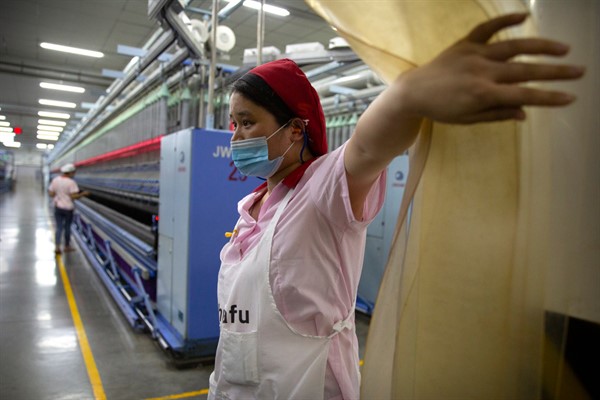In January this year, two shipments of shirts made by the major Japanese brand Uniqlo arrived at a port in Los Angeles, where they were detained by the U.S. authorities. Few heard about the seizures until they were revealed in documents released by the U.S. Customs and Border Protection agency in May. It’s been a quiet story, receiving none of the media commotion that accompanied the Chinese boycott against fast fashion giant H&M and other retailers in March—but it has sent a ripple of fear through the fashion industry, nonetheless.
The confiscation was part of a U.S. effort to prevent products made in China’s Xinjiang Uyghur Autonomous Region from entering the U.S. market, which kicked off in the final days of the Trump presidency with a sweeping ban on cotton and tomato imports from the region. Xinjiang is the epicenter of the Chinese Communist Party’s campaign of repression against Uyghurs and other ethnic minorities, which the U.S. has designated a genocide. The Trump administration’s ban responded to revelations in the spring of 2020 that the CCP has systematically transferred Uyghurs from so-called “re-education camps” to factories across China, where they are forced into labor. An investigation by the Australian Strategic Policy Institute identified 82 global brands that are implicated indirectly or directly in these modern slavery networks, including Nike, Apple, General Motors and, yes, Uniqlo.
Many companies opposed the Trump administration’s ban, anticipating costly interruptions to their supply chains, and some have lobbied against similar measures that are now moving through Congress. But the Uniqlo seizures indicated that the restrictions were even more onerous than apparel companies had feared.

